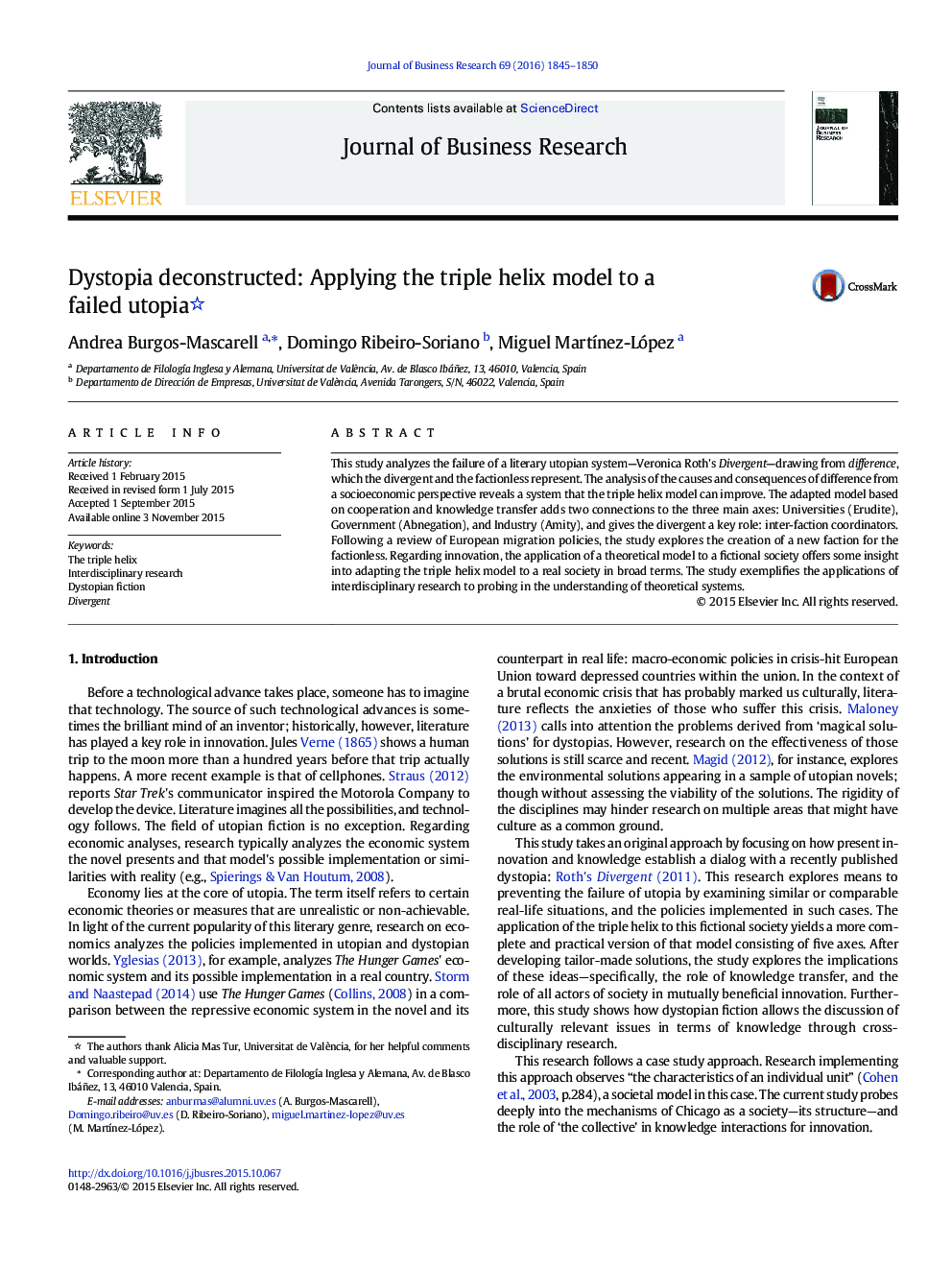| Article ID | Journal | Published Year | Pages | File Type |
|---|---|---|---|---|
| 10492790 | Journal of Business Research | 2016 | 6 Pages |
Abstract
This study analyzes the failure of a literary utopian system-Veronica Roth's Divergent-drawing from difference, which the divergent and the factionless represent. The analysis of the causes and consequences of difference from a socioeconomic perspective reveals a system that the triple helix model can improve. The adapted model based on cooperation and knowledge transfer adds two connections to the three main axes: Universities (Erudite), Government (Abnegation), and Industry (Amity), and gives the divergent a key role: inter-faction coordinators. Following a review of European migration policies, the study explores the creation of a new faction for the factionless. Regarding innovation, the application of a theoretical model to a fictional society offers some insight into adapting the triple helix model to a real society in broad terms. The study exemplifies the applications of interdisciplinary research to probing in the understanding of theoretical systems.
Keywords
Related Topics
Social Sciences and Humanities
Business, Management and Accounting
Business and International Management
Authors
Andrea Burgos-Mascarell, Domingo Ribeiro-Soriano, Miguel MartÃnez-López,
